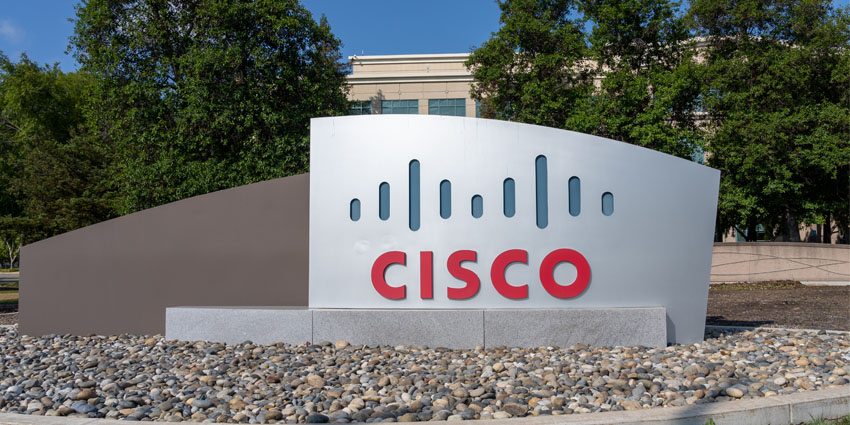The era of digital office environments has finally arrived. With remote and hybrid work now taking over as the “new normal” for most companies, organisations are investing rapidly in tools that maintain productivity and support collaboration in a virtual environment.
Tools like RingCentral Office and Avaya Cloud Office are paving the way for countless brands in the midst of a digital transformation journey. The question for some companies is: how do these two solutions differ?
Avaya Cloud Office is powered by the RingCentral Office environment, leaving many business buyers to assume they’re purchasing the same solution under different names. However, there are a few differences between Avaya and RingCentral’s solution worth acknowledging.
Let’s take a closer look.
What is RingCentral Office?
RingCentral Office has earned RingCentral the position of Gartner Magic Quadrant Leader for UCaaS for 6 years in a row, and it’s easy to see why. The RingCentral Office environment is a comprehensive cloud landscape built to bring business users together wherever they are.
Built on an expansive global environment, RingCentral Office offers international numbers across 70 countries, and local numbers with more than 200 different area codes. Aside from standard calling features like directory listings, toll-free numbers, and amazing global uptime, RingCentral Office also provides things like:
- Phone system administration with auto-receptionist and multi-level IVR
- Role-based access control and remote provisioning
- User templates to roll out new functionality with ease
- Auditing trails, call reports and e-discovery
- Music on hold, call extensions and a dial-by-name directory
- Call monitoring and single sign-on
- Phone provisioning with RingConnect CloudConnect
- Caller ID control
- RingOut, and RingMe
- Virtual desktop app
- Desk phones from collaborations with Polycom, Cisco, and Yealink
- Call management with answering rules, call handling, and call forwarding
- Automatic call recording
- Call screening, call park, call flip
- Presence
- Intercom and paging
- Shared lines
- Call logs
- Message alerts and notifications
- Custom voicemail, visual voicemail, and greetings
- Business SMS and MMS
- Integrations with a host of leading tools and services (including Salesforce)
RingCentral Office also comes with an immersive Team Collaboration solution in the form of RingCentral Glip for chat and file sharing. There’s also support for conferencing and meetings via video and audio from a range of devices, and a “RingCentral Phone for Mobile” option.
What is Avaya Cloud Office?
Avaya Cloud Office is a combined offering from Avaya and RingCentral. The solution leverages the RingCentral Cloud Office environment for cloud communications and collaboration, then layers additional service, technology, and hardware features on top.
The Avaya Cloud Office includes the full RingCentral Office suite, with all the features mentioned above for desktop and mobile UC, calling, messaging, and video collaboration. Depending on the package you choose from Avaya, you can access things like:
- Comprehensive inbound and outbound minute packages
- Team messaging, document sharing, and screen sharing
- Call logs and on-demand call recording
- Video meetings and audio conferencing
- Integrations with popular tools like Slack, G-Suite, and Office 365
- Single sign-on, custom roles, and permissions
- Advanced call handling with barge in and whisper
- Industry-specific integrations with regulatory compliance
- Device status reports, and call quality reporting
- Multi-site administration and management
- Developer access and custom integrations
What makes Avaya unique from the RingCentral Cloud Office environment is the Avaya brand’s ability to implement extra functionality and services. For instance, Avaya has a range of amazing desk phones, speaker phones, and other devices to offer today’s evolving companies, so you can access your hardware and software in the same environment.
Avaya also offers a range of migration tools to help simplify the transition from the on-premises environment into hybrid and cloud technology. Avaya services include support for customers throughout the deployment life cycle, from providing customers with provisioning guidance, to following up after a sale with customer success strategies.
Avaya Cloud Office vs RingCentral Office: Which is Better?
Avaya Cloud Office builds on the foundation of RingCentral Office. Since the partnership between RingCentral and Avaya emerged, the two companies have been working in tandem to make the transition into a future of cloud easier for companies of all sizes.
On its own, RingCentral offers a powerful and scalable solution for cloud communications. The RingCentral Office environment is packed full of all the features you need for productivity, even if employees are distributed around the world. RingCentral Office combines collaboration features with excellent security, robust access controls, global calling packages, and an easy-to-use environment that works with any device.
Avaya Cloud Office takes the central features of RingCentral Office and adds its own spin. The Avaya added services include extra support and guidance for companies making the transition into the cloud. Avaya can help you make the transition into the “as a service” environment for UC, then align your investment with cloud solutions for contact centre technology too. You can also use the extensive CPaaS environment offered by Avaya to make your own connections with APIs.
Because Avaya Cloud Office is designed to work seamlessly with existing Avaya investments in cloud contact centre, IP telephony, and other technology, it’s the ideal choice for a company already committed to an Avaya contract. RingCentral Office on its own may be the right choice for a company in search of a brand-new approach to cloud.
Should You Use Avaya or RingCentral?
Both Avaya and RingCentral offer a fantastic collaboration and communication stack for businesses of all sizes. Because the Avaya Office environment builds on top of RingCentral technology, it offers many the same features. The added benefit is you get integrations with Avaya technology, CPaaS, CCaaS, and Avaya added services too.
RingCentral, on the other hand, provides a comprehensive cloud communication solution for companies looking to purchase a comprehensive UCaaS environment, without worrying about existing legacy tools they need to migrate into the cloud. This doesn’t mean that RingCentral isn’t flexible, however. RingCentral also provides a range of integrations and API support solutions for companies that need help building the perfect UCaaS environment to suit their needs.







